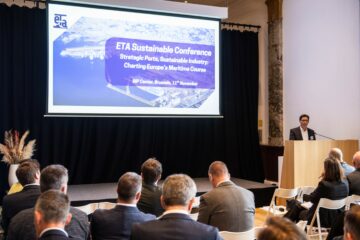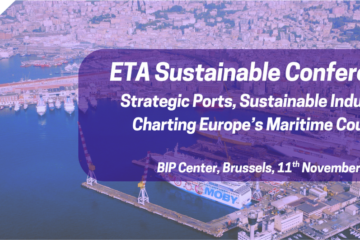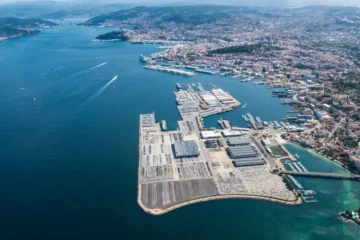Over 170 countries reached agreement on Friday (13 April) to reduce CO2 emissions from shipping at the last IMO MEPC meeting. After two weeks of negotiations, developing and developed countries signed a compromise to diminish GHG emissions by at least 50% by 2050 compared to 2008. This historic decision aims to align the shipping industry with the objectives agreed at Paris in 2016, limiting global warming to 1.5C.
The adoption of this initial strategy “would allow future IMO work on climate change to be rooted in a solid basis” according Kitack Lim, Secretary-General of the International Maritime Organisation (IMO). Shipping currently represents 2-3% of global CO2 emissions and could reach 10% by 2050 if no action is taken.
The compromise plan to halve shipping emissions by 2050 leaves the door open to deeper cuts, placing a strong emphasis on scaling up action to 100% by mid-century and calling for a peak on emissions as soon as possible. Moreover, the initial strategy represents a framework for further action, including guiding principles, short-, mid- and long- term measures, etc. Still, this text is not legally binding for IMO member states. This initial strategy is to be reviewed in 2023 when IMO members should approve a global mandatory framework to reduce emissions. Moreover, in the same meeting IMO adopted a ban on carrying high-sulfur fuel on board vessels and agreed on plans to ban heavy fuel oil (HFO) from Arctic shipping.
The EU Commission welcomed the agreement as “a significant step forward”. In spite of the higher level of EU ambition, the EC representatives confirmed their support as “a good starting point that will allow for further review and improvements over time”. Shipping currently represents 2-3% of global CO2 emissions and could reach 10% by 2050 if no action is taken.
Anna Maria Darmanin, ETA Secretary General said: “This is a very important and responsible step in the right direction. The European towage industry has been at the vanguard of the decarbonization process in the maritime sector and will surely play an important role in the greening of shipping”.
The EU towage sector has been fostering the development of greener technologies in the last years. ETA members have been the first in the world to launch hybrid tugs (LNG and electricity propulsion) and are committed to keep on reducing the environmental impact of their fleet.



0 Comments